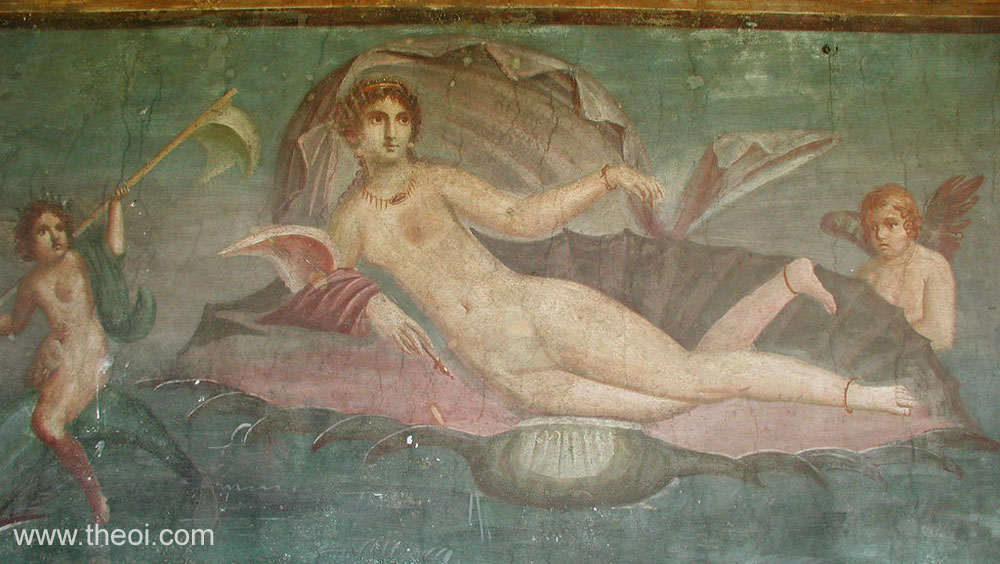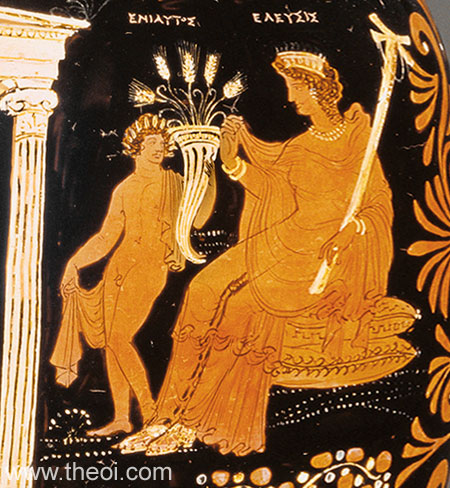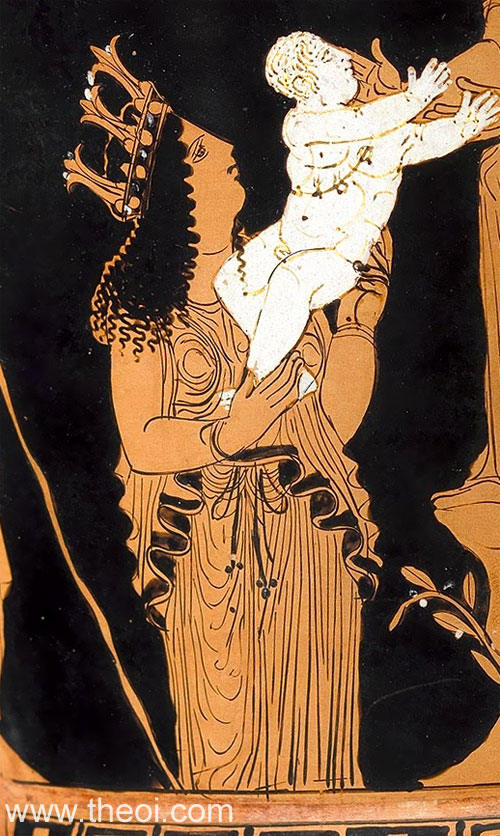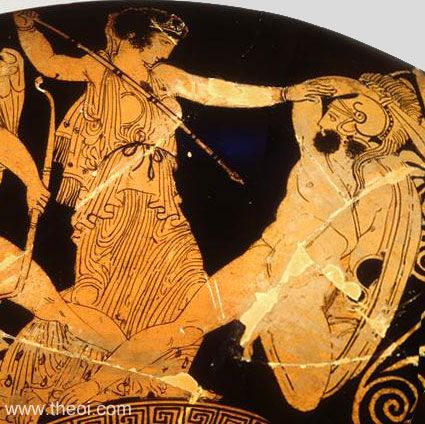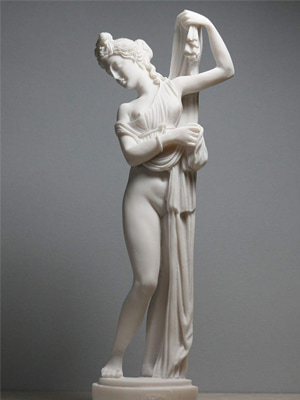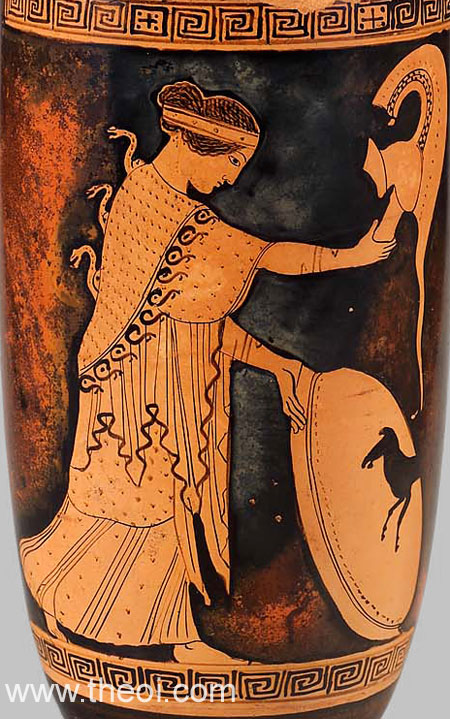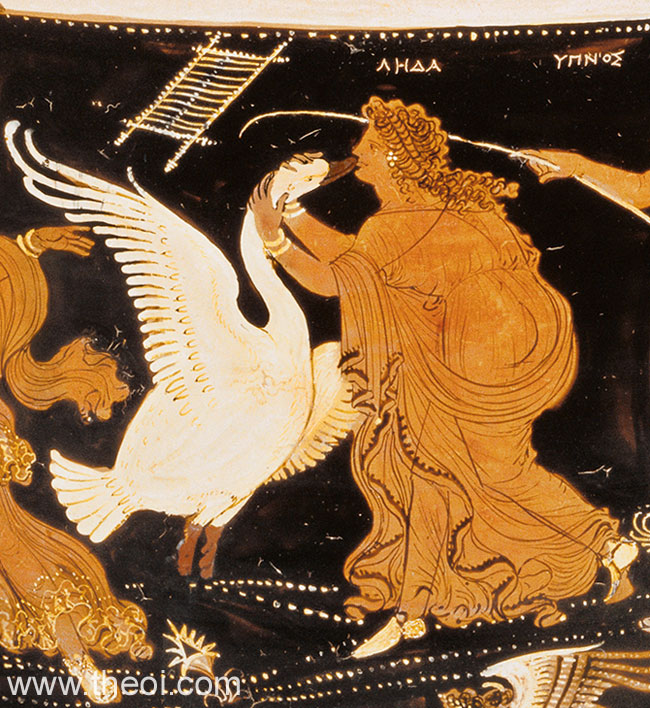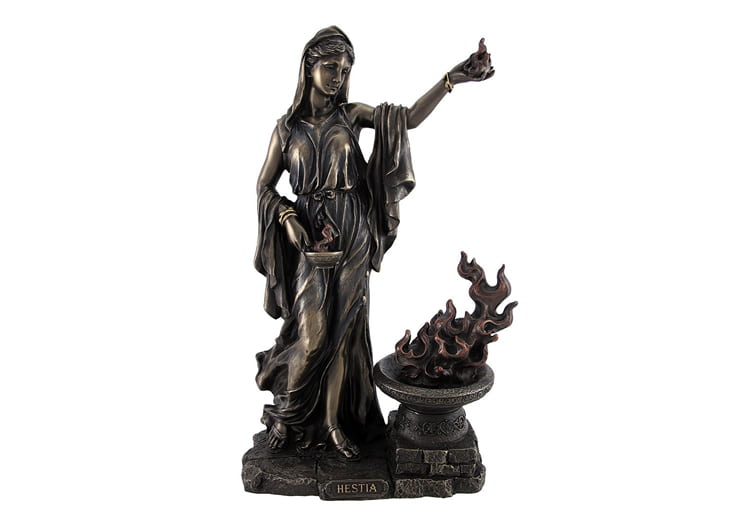The stories of Greek mythology are centered on both mortal heroes and immortal deities to teach an assortment of lessons. When it comes to deities, Greek mythology focuses on the gods and goddesses that control both the earth and the life of man. The stories of these gods and goddesses have been and will continue to be told for centuries.
Early Life
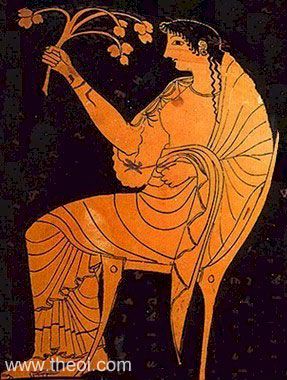
Hestia was born to the Titan gods Cronus and Rhea which made her the sister to goddesses Demeter and Hera, and gods Hades, Poseidon, and Zeus. Hestia was one of the original 12 Olympian gods and vowed to keep peace at Olympus.
Innocent and pure, Hestia made a promise to Zeus that she would never marry. As both Poseidon and Apollo wanted to marry her, Hestia chose to remain a virgin for eternity to prevent a war between the two.
Zeus rewarded Hestia with the central location of the home. This reward combined with her virginity, purity, and innocence, made Hestia the goddess of the home, hearth, and family.
Home, Hearth, and Family
Hestia means “hearth” or “fireside.” Because she was a pure and innocent virgin who had been given the centralized location in the home, Hestia became associated with fire and the hearth. Hestia would stay within the home and tend the fire so that it would not go out.
To honor Hestia goddess, there was a public hearth in each city that required tending and was never allowed to burn out. When new settlements were established, they would take kindling from the hearth to create fires in their new locations. As an homage to Hestia, the fires within the cities were not allowed to go out.
As goddess of the hearth, Hestia was a part of cooking and sacrificial rituals. Her responsibility to the fire was rewarded by receiving a portion of the food or offering in the home, as well as a serving of wine poured in her name.
While she was a virgin, Hestia embodied the importance of domestication within the home. Hestia represented the importance of tending the fire and overseeing cooking and offerings by the fireside.
Hestia and the Donkey
One night as Hestia slept, the god, Priapos, advanced himself on the goddess in an attempt to tarnish her innocence. As Priapos was attempting his advances, a donkey began braying, which woke the goddess. Hestia was able to call for protection, and gods and guests within the home came to Hestia’s aid, preserving her purity and innocence.
Because of the donkey’s braying that awoke Hestia from her sleep, donkeys were not sacrificed during feasts. Instead, donkeys were crowned and rested during these feasts.
Lesser-Known, Modest but Beloved Goddess
Because Hestia was pure and confined to the home, she is one of the lesser-known goddesses in Greek mythology. Her stories do not include journeys, quests, or voyages throughout the land. Because of her attachment to the home with no monumental expeditions, Hestia is often criticized as being a dull goddess.
Hestia’s few stories include her generosity and priority to tend the fire within the home. Because Hestia was gentle and mild, she personified the domestication that was required in the home, which made her a beloved goddess. Hestia had a forgiving and hospitable nature. It is told that Hestia gave up her place in Mount Olympus to the god, Dionysus. Because Hestia gave her throne to Dionysus, Hestia is sometimes excluded as one of the original twelve Olympians.
Hestia was hospitable, generous, and devoted. Her stories, while few, have been told for centuries and honored throughout the Greek culture.
Depictions of Hestia will show her in modest, full clothing, and holding a flower. If she is not holding a flower, she will be shown holding a flame or candle in her hand, which represents her association with fire.
Honoring Hestia
Fire has been a sacred element in the Greek culture for centuries, and that consecration continues today. The burning of the Olympic torch pays tribute to Hestia and the importance of carrying and maintaining a fire to light a city.
On a smaller, more personal scale, you can honor Hestia in your home by continuing to keep a candle lit in your home. When the candle is nearing its end, use the flame to light a new candle. Keep the fire burning, if possible, just as Hestia prioritized in her life. If the flame must go out, put the flame out in a ritual that honors Hestia.
It is believed that the crackling of fire is the sound of Hestia laughing, which is her audible gift to man.
